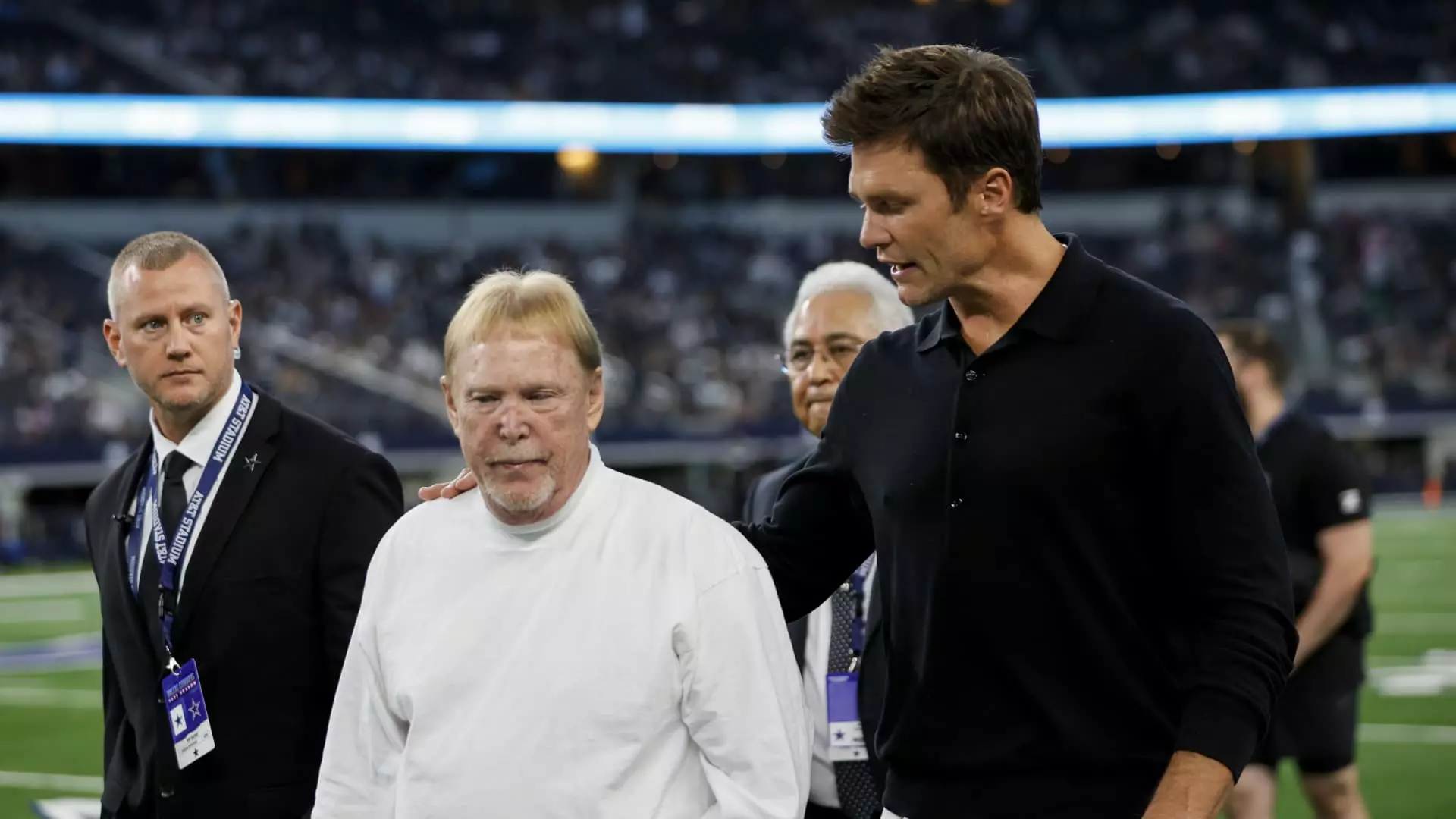In a landmark decision for both the National Football League (NFL) and sports ownership at large, Tom Brady—a name synonymous with football excellence—has secured a minority ownership stake in the Las Vegas Raiders. This development marks a significant shift in the culture of NFL ownership, not only elevating Brady from player to owner but also ushering in a new era where high-profile athletes transition into executive roles. The deal, which was reportedly finalized on Tuesday during the NFL owners’ meeting in Atlanta, exemplifies the growing trend of athletes leveraging their fame into executive positions within professional sports franchises.
Brady’s investment reportedly includes a 10% share of the Raiders, which has now been valued at an impressive $7.8 billion, making it the fifth most valuable franchise in the NFL according to CNBC’s Official 2024 NFL Team Valuations. This valuation reflects an extraordinary rise for a team that has seen its worth plummet in previous years, particularly during its last days in Oakland. The franchise has experienced a rebirth since moving to Las Vegas in 2020, with skyrocketing revenues—totaling approximately $780 million in 2023 and generating an EBITA of $115 million.
The allure of Las Vegas as a sports city cannot be overstated. The Raiders’ Allegiant Stadium, although one of the league’s smaller venues, commands the highest ticket prices. With an average general ticket price of $169 last season, the team is clearly maximizing revenue potential. Beyond football games, Allegiant Stadium hosts a variety of high-profile events, from concerts to college football contests, which has helped to expand the Raiders’ income streams. It’s clear that this substantial financial footprint will play a crucial role in the team’s strategy moving forward, especially with the renowned Brady now on board.
While many former athletes have transitioned into various roles post-retirement, Brady’s move puts him in a unique category. He becomes only the third former NFL player to claim ownership of an NFL team. However, it’s essential to note that this new ownership role comes with its own set of restrictions. For instance, while he will be able to cover the Raiders as part of his broadcasting agreement with Fox Sports, he won’t be allowed to participate in team-specific functions like production meetings. Such limitations highlight the ongoing complexities around athlete ownership in a league that values tradition and uphold certain operational boundaries.
Brady’s venture into ownership is not entirely unprecedented; he previously entered the Las Vegas sports scene as a minority owner of the Women’s National Basketball Association’s (WNBA) Las Vegas Aces, which is also owned by Mark Davis. This dual ownership may indicate a deeper commitment to the city and could foster collaborative efforts between the two franchises aimed at maximizing commercial opportunities.
The Implications for the NFL Landscape
Brady’s acquisition could hold substantial implications for the broader NFL community. His visibility and brand power can not only enhance the Raiders’ marketability but also attract potential sponsorship deals and partnerships that could redefine revenue streams in today’s sports economy. Furthermore, the blending of modern media engagement and traditional team ownership may set a precedent for future player-owners who choose to navigate these complex waters.
Brady’s entry into ownership could also influence how players perceive post-retirement opportunities. As the NFL continues to evolve into a more business-oriented landscape, former players may increasingly consider ownership or executive roles as viable paths after their athletic careers. This shift could foster a culture of engagement where player expertise and insights could significantly enrich team strategy and community connection.
As Tom Brady embarks on this new adventure with the Las Vegas Raiders, the convergence of athletic prowess and ownership savvy seems promising. From his storied career on the field to navigating the complexities of team dynamics off the field, Brady embodies the changing face of sports leadership. This monumental shift not only brings excitement to fans but also paves the way for a new generation of athlete-owners eager to imprint their legacy in the annals of professional sports. The NFL and its teams are entering uncharted territory where the lines between player and executive blur, and all eyes will undoubtedly be on Brady’s next moves in the boardroom and beyond.

Leave a Reply